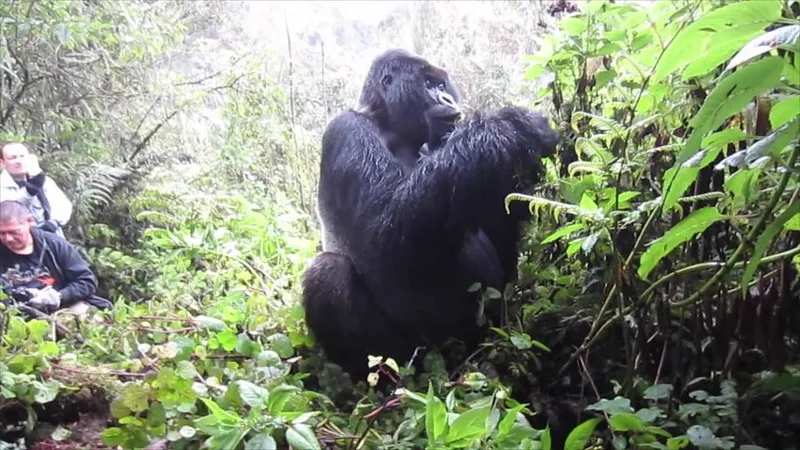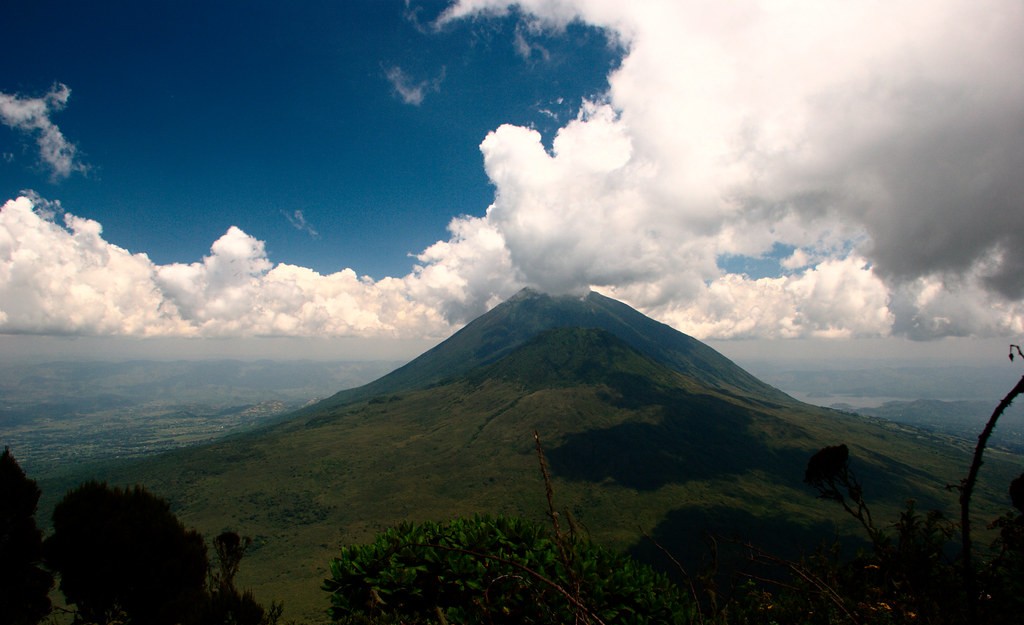
Rwandan staff and foreign researchers
Rwandan staff and foreign researchers – Rwanda safaris and tours.
Rwanda safaris and tours
Fire was a choice and would have helped. Our little wood-burning stove could burn around an hour’s worth of wood. Sadly, the wood was almost always damp. It was also cut in the park from dead Hagenia. This had always been accepted custom at Karisoke, and there did seem to be enough.
Against our one basket, Dian used six to nine wicker baskets of wood daily in her two stoves and open fireplace. But we questioned what the effects on the ecology may be from eliminating so much fallen timber. And it was unsettling to be able to freely use a resource for which local people may be jailed.
We cut our consumption to a minimum in a modified moral bailout so that, should a fire strike, we can also dry clothing or plant samples. Eventually, Dian saved us from this moral dilemma by totally shutting off our wood supply in apiquee over some unperceived wrongdoing on our side.
A FIRE BURNED in the open pit, the actual hub of activity at Karaoke. Two panels of corrugated tin covered the pit partly to guard against the significant fire usage for cooking meals, boiling oil, and water. There was warmth of many sorts here.
It was a meeting spot for the Rwandan camp workers in the few occasions when they were free from other tasks. While stirring the always-present pot of beans that supplied breakfast, lunch, and supper, they could escape the cool air, dry their rolled-up tobacco leaves on the hot stones, and swap tales of the day.
Someone whohasd just returned from the valley may provide updates on the state of the crops or news from another household. Every man worked half an hour at karisoke; none worked more than half an hour as farmers. Staff from Rwanda and overseas scholars might also mingle and chat by the fire pit.
At the research station, three stable posts existed. Although he was largely in charge of weekly washing for another camp, thethe housekeeperr mutu ya nyumba, was busy with chores at Dian’s cabin. Following karisoke tradition, two men divided this role in alternate twenty-day stints each, each with a separate surname.
As Rwandans had come to know from the Belgians, who in turn must have acquired from the British in East Africa, Kanyarogoro was the senior “boy.” He also had the unofficial status of Dian’s main in- camp informant.
He performed the job to hilarious effect with continually changing eyes and sideward looks, as well as a penchant to lurk rather than move about the station grounds. It was not long before one saw he was really adecentt man with a matching reputation and a sad collection of behavioral tics. Basira, the other housekeeper, was more friendly.
Of the three primary camp occupations, the wood cutter—also known as muntu ya kuni—had the lowest rank. Usually divided into 10-day shifts, the two guys have no obvious hierarchy between them. Nshogoza had been sacked at least once previously but had worked at Karisoke longer.
Maybe for this reason, his public persona was dour, but personall,y he was a really likeable guy who regarded himself as more than just woodcutterer and obviously desired to improve himself. His buddy Rukera was much different. He was always smiling, doing the clown to the fullest, and the butt of many jokes while at camp.
Still, he was a diligent worker who looked to be in perpetual cold and discomfort. With no boots nor rain gear, he spent his daybarefoott roaming the chilly, damp saddle in an endless hunt for fallen Hagenia trees. At an average pace of twelve to fifteen loads daily, he would slice them up, pack them into baskets, then carry them back to camp on his head. Often balanced a whole wood on his head so he could take it back to cut nearer the fire.
On one such instance, his axe-head pointed off a tree and cut precisely into his bare right foot. Basira beckoned us to counsel on treatment as Rukera limped into the pit and rested on a wooden seat. Ian Redmond had started by the time we got here, so we joined the other camp workers observing as Ian threaded a really big needle he used to fix his boots.
Rukera hardly flinched as the needle passed his thick skin, and Ian healed the three-inch wound with successive firm stitches. Then he laughed with the others at his own bad luck. Rukera left camp alone early the following morning to travel the many hours down the mountain and back to his residenc,e wearing a borrowed rubber boot on his broken foot.
Rwanda safaris and tours


